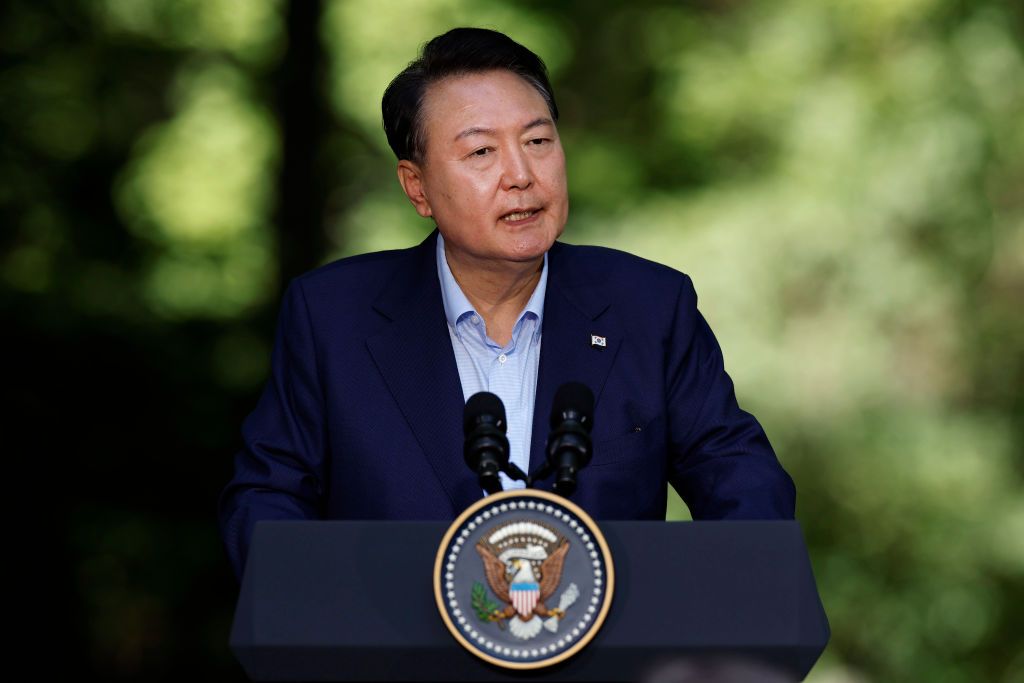President-elect Trump and South Korean President Yoon Suk Yeol recently held a phone call to discuss future cooperation, particularly focusing on the escalating situation in North Korea. The discussion included concerns about North Korea’s nuclear capabilities, missile tests, and reports of troops being dispatched to aid Russia in its war against Ukraine. The details of the conversation were not disclosed, but it is noted that Trump’s return to the White House in January could bring uncertainty regarding U.S. support for Ukraine, as he has indicated a desire to reduce aid and negotiate with Moscow. Trump has also shown a willingness to engage with authoritarian leaders like Russian President Putin and North Korean leader Kim Jong Un.
During the 12-minute conversation, Trump and Yoon also talked about the trilateral relationship between the U.S., South Korea, and Japan, as well as cooperation in the shipbuilding industry. They agreed to meet in person in the near future to further discuss these issues. There is anticipation about Trump’s plans for addressing Russia’s war against Ukraine, as he has claimed in the past that he could end the conflict in 24 hours. However, the specifics of his strategy remain unclear.
The situation in North Korea remains a key concern for both the U.S. and South Korea, as Pyongyang continues to advance its nuclear capabilities and conduct missile tests. The reported dispatch of troops to support Russia in its war against Ukraine has raised further alarm about North Korea’s actions and intentions. With Trump signaling a shift in U.S. foreign policy towards Russia, there is uncertainty about how this will impact the ongoing tensions in the region. The trilateral relationship between the U.S., South Korea, and Japan is seen as important for maintaining stability and security in East Asia.
Trump’s warm relations with authoritarian leaders like Putin and Kim Jong Un have been a point of contention for many, as they contrast with traditional U.S. foreign policy approaches. Trump’s willingness to engage with these leaders has raised concerns about his ability to effectively address the complex security challenges in the region, particularly in relation to North Korea. The phone call between Trump and Yoon reflects their shared interest in enhancing cooperation and addressing common challenges, but the specifics of their plans remain to be seen. The upcoming meeting between the two leaders will likely shed more light on their priorities and strategies moving forward.
As Trump prepares to return to the White House in January, there is anticipation about how his administration will approach key foreign policy issues, particularly in relation to North Korea and Russia. The phone call with President Yoon indicates a willingness to strengthen partnerships and address shared concerns, but the details of their plans for dealing with the escalating tensions in the region remain uncertain. With North Korea’s nuclear capabilities posing a significant threat to regional security, the U.S. and its allies will need to work together to find effective solutions and prevent further escalation of conflicts. Trump’s approach to diplomacy and engagement with authoritarian leaders will continue to be a point of scrutiny as he navigates complex international challenges.


